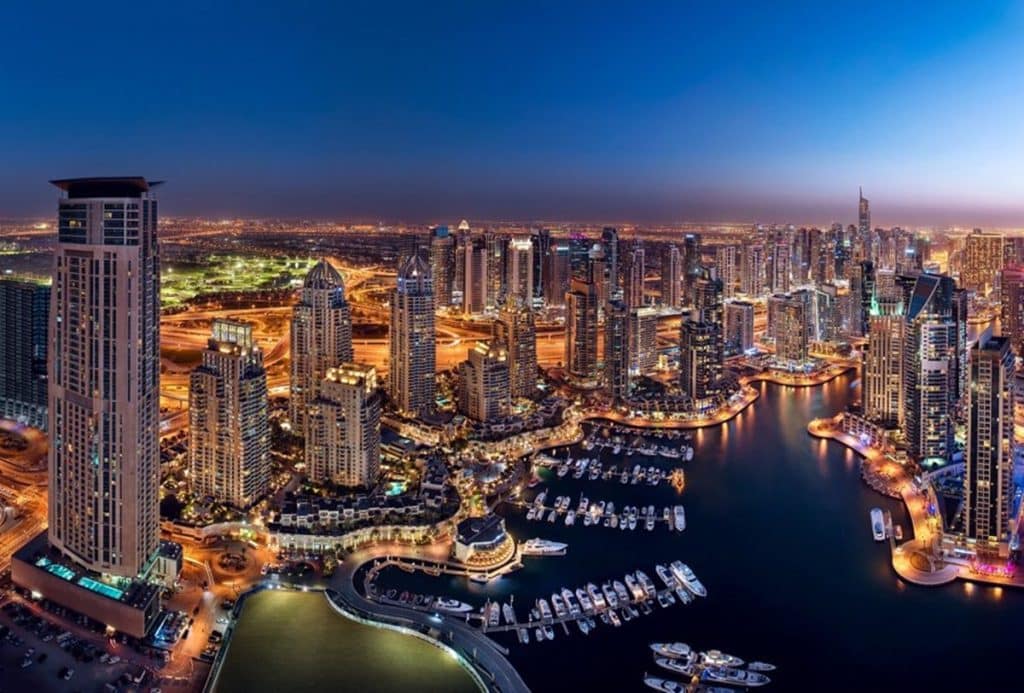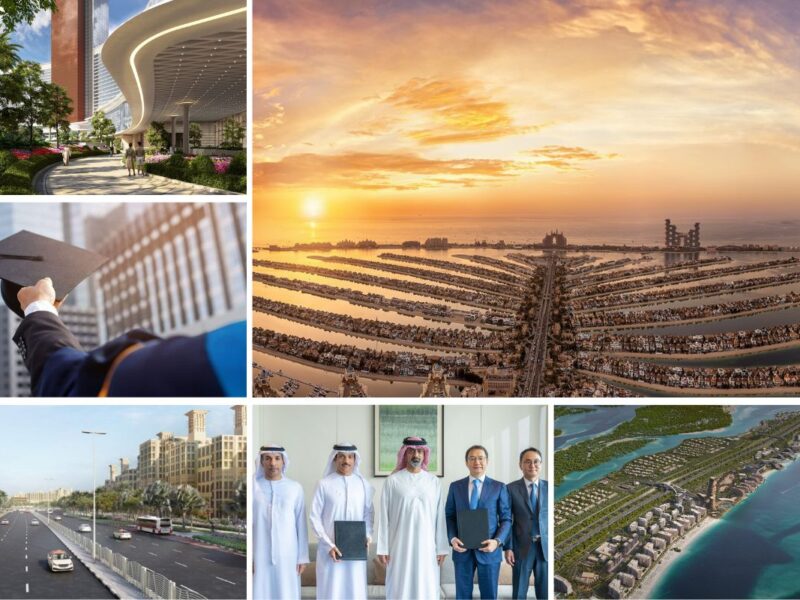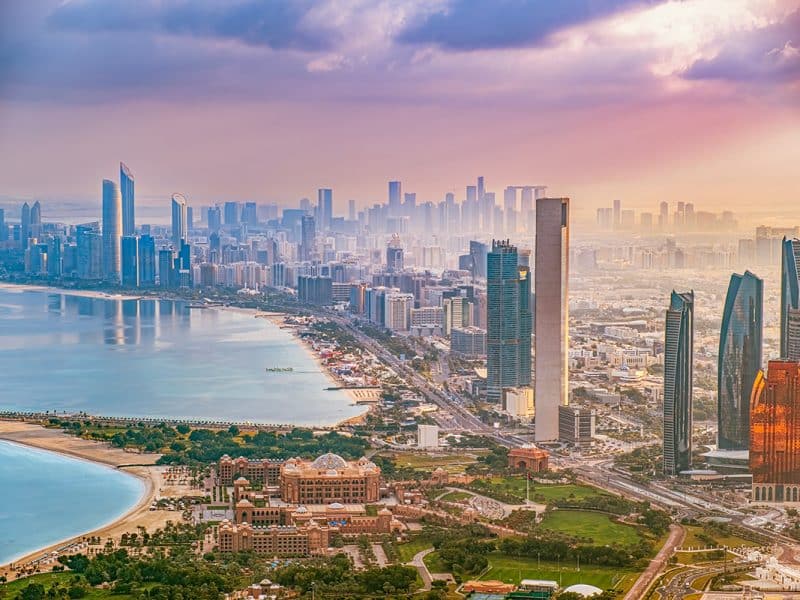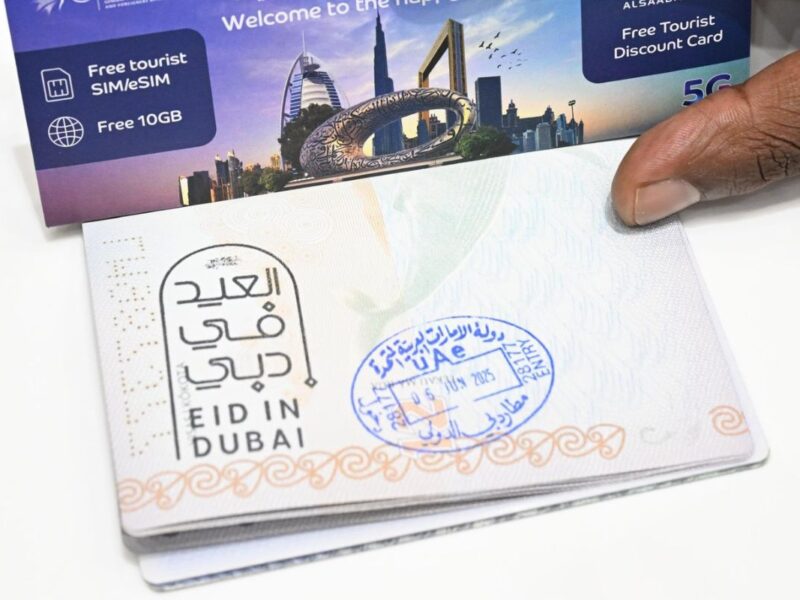Real estate markets in the UAE, Saudi Arabia and Kuwait are expected to thrive in 2025, according to Kuwait Financial Centre “Markaz”.
In its latest real estate market reports, Markaz provides analysis of market trends in Kuwait, Saudi Arabia, and the UAE for H2 2024, as well as a forward-looking assessment for H1 2025.
The reports highlight a positive trajectory for the GCC real estate sector, driven by economic recovery, easing interest rates, and robust government policies.
UAE, Saudi and Kuwait real estate reports
With macroeconomic indicators pointing towards continued stability, Markaz anticipates sustained growth in the Kuwait, Saudi Arabia, and UAE real estate markets through H1 2025.
Lower borrowing costs, ongoing government-backed reforms, and heightened investor participation are expected to reinforce market confidence and drive expansion.
The long-term outlook for the GCC real estate sector remains positive, despite short-term fluctuations, presenting compelling opportunities for investment and development.

UAE real estate report
The UAE real estate market saw record-breaking activity in 2024, with total sales transactions reaching AED457bn ($124.4bn) by mid-November 2024, marking an 11 per cent increase from 2023 and a 72 per cent increase from 2022.
Dubai continues to attract international investors, supported by favourable policies such as the Golden Visa program. The UAE’s non-oil economy is projected to grow steadily, backed by robust tourism and real estate sectors.
Dubai remains a top global destination, with competitive affordability compared to cities such as Hong Kong, Singapore, and London. Attractive rental yields 6.4 per cent in Dubai and 5.8 per cent in Abu Dhabi—continue to draw investors.
The UAE’s real GDP is projected to grow by 5.1 per cent in 2025, supported by strong expansion in the non-oil sector and a 6.7 per cent rebound in oil GDP.
Dubai’s real estate sector remains a key driver of this growth, bolstered by the Dubai Real Estate Sector Strategy 2033, which aims to increase total real estate transactions to AED1tn ($227.2bn) by 2033, contribute AED73bn ($20bn) to Dubai’s GDP, and expand the emirate’s real estate portfolio 20-fold.
Additionally, sustained demand for off-plan properties, along with continued expansion in the residential, office, and hospitality segments, is expected to fuel real estate activity through H1 2025.

Saudi Arabia real estate report
Saudi Arabia’s real GDP growth showed signs of recovery in 2024, with quarterly GDP rebounding from -4.3 per cent in Q4 2023 to 2.8 per cent in Q3 2024, reflecting strong momentum in tourism, real estate, and construction.
The KSA real estate price index rose by 2.9 per cent year-on-year in Q3 2024, driven by a 1.6 per cent increase in residential land prices and a 6.4 per cent rise in commercial sector values.
The commercial real estate segment has particularly benefited from rising demand amid strong non-oil economic growth.
Saudi Arabia’s fiscal position remains under some pressure, with a projected fiscal deficit of 3.4 per cent of GDP in 2025.
The 2025 national budget anticipates a 6.8 per cent decrease in non-tax revenue, primarily attributed to lower oil earnings, potentially resulting from an extension of OPEC+ production cuts.
However, the government continues to prioritise large-scale infrastructure and giga projects, reinforcing growth in the real estate sector.
The successful bid to host the FIFA World Cup 2034 is expected to drive further expansion, particularly in hospitality, residential, and commercial developments.
In 2025, Saudi Arabia’s real GDP is projected to grow by 4.6 per cent, supported by a 4.4 per cent expansion in the non-oil sector.
Oil GDP is also expected to turn positive, aided by the expected gradual unwinding of OPEC+ production cuts.
Given these factors, Saudi Arabia’s real estate sector remains in an accelerating phase, with sustained momentum expected in H1 2025 as investor confidence grows and government-led initiatives continue to drive market expansion.

Kuwait real estate report
Kuwait’s real estate sector continued to recover in 9M 2024, particularly in the investment and commercial segments.
Land prices in the Istithmari (investment) segment rose by 3.3 per cent year-on-year as of Q3 2024, reflecting positive investor sentiment, while commercial sector land prices surged by 7.6 per cent over the same period.
However, the residential segment continued to face valuation pressures, with land prices declining 3.3 per cent year-on-year in Q3 2024.
Meanwhile, rental rates for apartments saw moderate increases, while office rental values remained stable.
Looking ahead to 2025, Kuwait’s real GDP is expected to grow by 3.3 per cent year-on-year, marking a strong recovery from the -2.7 per cent contraction estimated for 2024.
This positive outlook is driven by increased project activity, and expanding credit growth, which are expected to bolster demand for commercial real estate.
With macroeconomic indicators signalling continued improvement, the Markaz Real Estate Macro Index score for Kuwait currently stands at 3.5 out of 5.0, indicating sustained market confidence and growth potential.
H1 2025 is expected to bring further acceleration, with rebounding land prices and rental rates, supported by ongoing government reforms and an improving economic landscape.









